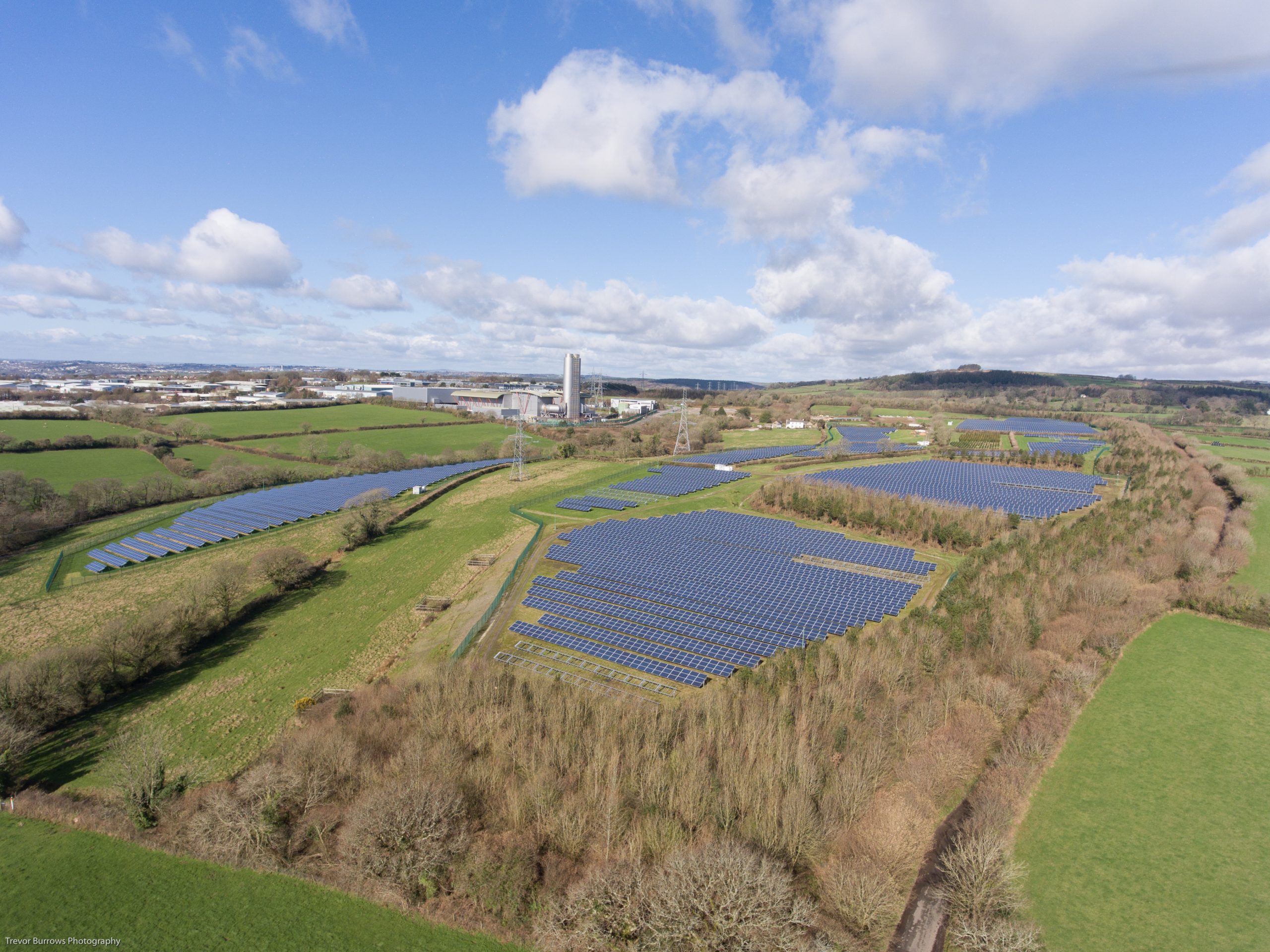The gas synthesising firm has secured planning permission for its third planned green hydrogen plant, a 10MW facility to be located in the Langage Energy Park, on an industrial estate outside Plymouth.
Now that South Hams planners have agreed the project, Carlton seeks to confirm finance en route to starting operations, possibly as early as 2024.
Langage Energy Park, pictured, is designated for inclusion in Plymouth’s freeport, one of eight or more planned for England, where tax and employment charges will be loosened.
Possible in the EU as well as Britain, freeports’ controversial features include their size; the Plymouth & South Devon port extends as much as 45 kilometres inland.
Eric Adams, hydrogen projects director for Yorkshire-headquartered Carlton said: “Langage is ideally located for the West Country’s first low-carbon hydrogen hub.
“With the need, especially among industrial companies, to move away from fossil fuels and reach Net Zero, Langage Green Hydrogen and our other projects can make an important contribution to the transition to the hydrogen economy.
Exeter-based energy consultancy Regen has identified hydrogen’s importance to the West Country, both in economic development and the region’s transition to Net Zero.
“The significance of (this grant of) planning permission at Langage Energy Park cannot be overstated”, Regen’s CEO Merlin Hyman observed:
“To have one of the first green hydrogen production plants in the South West is great news for the decarbonisation of the region.”
Repeating its approach to securing electrolysed hydrogen centres in Greater Manchester and Barrow-in-Furness, Carlton has teamed up with Devon’s local enterprise partnership
As with its two sister plants, securing financial support from the government’s Hydrogen Investment Package is also Carlton’s pre-requisite for breaking ground at Langage. In July D-BEIS published its latest guidelines for HIP applicants. In regard to its Cumbria ambitions, Carlton to apply before December.
Claire Gibson, head of delivery at the Heart of the South West Local Enterprise Partnership, said: “It is fantastic to see Carlton Power choose Devon as its location for its next hydrogen hub. We are pleased to have supported the project, in line with our aims to drive the region’s clean growth agenda.”





As a technicality, Carlton Power is not likely to sythesise any products as stated in this article, even less with an electrolyser that splits the water molecule into hydrogen and oxygen. Could some of the green electricity to power their electrolyser come from the Xlinks project to bring green electricity from Southern Morocco by million volt DC sub-sea twin cables all the way to Devon? https://xlinks.co/
Over and over again we hear that green hydrogen is essential for decarbonising our energy systems.
This is just not true. Hydrogen is a secondary fuel, which has to be created from a primary energy source, such as electricity. Doing this wastes a colossal amount of energy as heat, and the heat cannot be used for anything – it is a completely useless waste.
For every 10kWh of electricity you put in to an electrolyser, you get 3kWh of hydrogen, and waste more than double that – 7kWh as heat. That means using far more electrical energy input than you get out, and half our electricity still comes from fossil fuels, so this conversion scheme is using huge amounts of fossil fuels to create useless heat. This is NOT any way to decarbonise anything.
It is time to stop promoting the hydrogen economy as if it is a good idea.
Brian, with great respect, hydrogen is just part of what is needed to decarbonise our energy systems. By 2050, most of the UK’s primary energy (what comes out of the generators) will be delivered as fossil-free electricity, with the rest probably from the heat delivered by ground source heat pumps. That primary energy needs to be saved on board moving machines and off-grid applications. While storing that electricity in a battery is the most efficient, the increasing battery weight for applications such as HGVs, trains and ships, makes hydrogen a useful source of the energy storage to back up the smaller batteries of hydrogen-electric vehicles. Hydrogen is increasingly important for the production of fossil free or green steel to replace the reducing agents coat and gas.. I suggest you read the Government hydrogen strategy published in august last year:
https://www.gov.uk/government/publications/uk-hydrogen-strategy